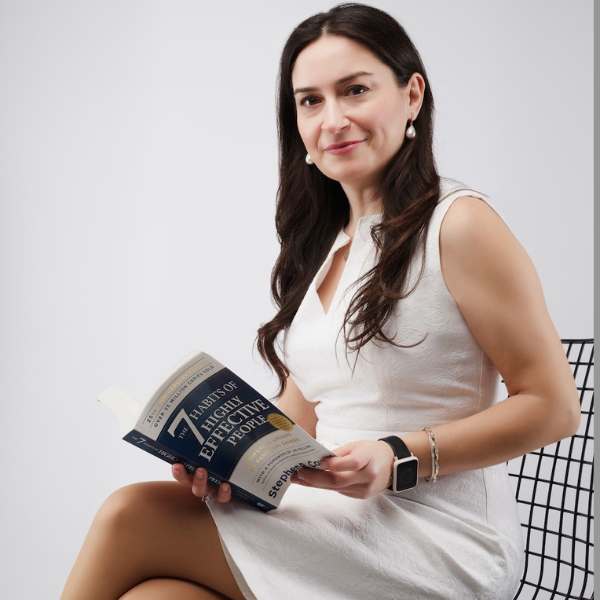With this course, you will learn more about routines and take steps to create your own routines.

Habit Coach
Pınar, who believes in the power of habits to provide balance between work and private life, carries out studies that adopt this principle both in her own life and in the lives of her clients. After 10 years of private sector experience, Pınar, who has been a Professional Coach and Trainer with the PCC title given by the ICF (International Coach Federation) for the last 5 years, organizes workshops called "Habit Design Workshop" in addition to individual sessions as a "Habit Coach".
In addition, she prepares and presents a podcast series called "Pleasant Habits". Pınar, who believes that routines and habits are acquired more easily with communities, founded the "Bursa Book Club" with her husband to develop the reading habit in people.
Routines are an essential tool that organize our lives, make us feel secure, and help us develop healthy habits. Sleep routines, especially for babies and children, play a critical role in their physical and emotional health. Sleep is crucial for children's development, learning processes, and overall health. In this article, I will share the importance of creating a sleep routine, what sleep routines should look like for babies and children, and tips for creating a successful sleep routine.
Routines help our brains understand when to do what. Sleep is the process of repair and renewal for the body. Creating a sleep schedule is not only essential for children but also for adults as part of a healthy lifestyle. When children sleep in a secure environment and a certain order, they become calmer both physically and psychologically.
A sleep routine marks the end of the day for your child and promotes the secretion of melatonin, helping their body transition to sleep and rest better throughout the night. Sleep routines are also important for regulating children’s nervous systems, strengthening their immune systems, and overall making them healthier.
Newborn babies can struggle to adapt to the outside world and establish a sleep pattern. This is because their biological clock is not fully developed, and they do not yet understand the difference between day and night. However, introducing a sleep routine early on can help them establish a healthier sleep pattern as they grow older.
At this stage, babies begin to sleep for longer periods, and their sleep routine gradually settles. Around the fifth month is also ideal for starting sleep training. During this phase, your baby's sleep routine might look like this:
During this period, babies sleep for longer hours. If a sleep routine has not been established yet, it is essential to start creating one now. Here are steps you can follow to establish a sleep routine:
The transition to sleep for children can be more complex compared to babies. However, establishing a sleep routine supports both the physical and emotional development of children.
Children in this age group sleep longer at night but may experience difficulty transitioning to sleep. Here is how you can create a sleep routine during this period:
At this stage, children become more independent but still require a secure and peaceful sleep environment.
Creating a sleep routine is an important milestone not only for children but for the entire family. A healthy sleep routine contributes to children’s development, making them happier and healthier. While creating a sleep routine, it is important to be patient, make adjustments based on each child’s needs, and remember that the routine will settle over time. By applying the above steps and tips, you can help your baby and child establish healthy sleep habits. However, it is equally important to recognize the significance of sleep routines for adults and to define activities that make transitioning to sleep easier for yourself. You can also benefit from the training and content prepared specifically by Budizzz Experts in the Budizzz App to start your family’s journey to healthy sleep and lifestyle.